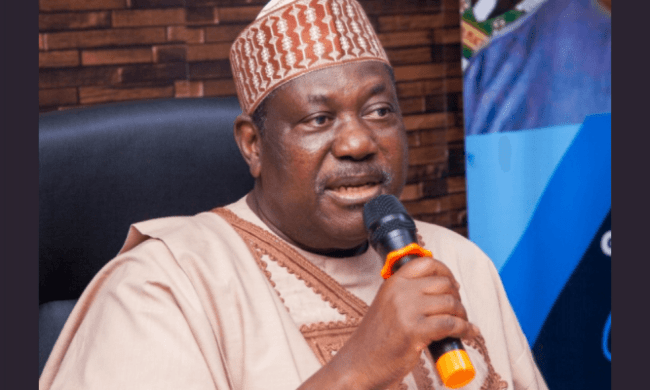The Federal Government yesterday opted to tackle US President Donald Trump head on insisting that the “dangerous and inaccurate” Christian genocide narrative spearheaded by him was inaccurate, and stressed that Nigeria does not need foreign troops on its soil, but targeted support from its partners and allies.
“The Nigerian Armed Forces are highly capable, experienced and professional. Nigeria does not require foreign troops,” said the government. It warned that such claims are already emboldening opportunistic violent groups and aggravating insecurity across parts of the country.
This position was contained in a detailed statement issued in Abuja and signed by the Secretary to the Government of the Federation (SSG), Senator George Akume. According to the Federal Government: “no credible international organisation has ever classified Nigeria’s security crisis as a genocide against Christians or any group.”
Akume said the President Bola Tinubu administration considers the proliferation of the genocide narrative not only false but “deeply harmful to national security,” stressing that it is now “fuelling more violence, sharpening sectarian suspicion, and giving opportunistic extremist actors a propaganda lifeline they had long lost.”
According to him, Nigeria’s complex security challenge has evolved across two separate fronts over the past two decades – the ideological insurgency of Boko Haram and ISWAP in the NorthEast, and the economically driven banditry ravaging the North-West.
“Across Nigeria, Christians and Muslims have been equally victimised. Boko Haram and ISWAP attack both churches and mosques, killing Muslims and Christians alike. Bandits target communities without any religious distinction,” he declared. The SGF emphasised that while Boko Haram originated as a radical ideological sect that later drew influence from Al-Qaeda and ISIS, North-West banditry is “overwhelmingly economic deterministic,” rooted in illegal mining, cattle rustling, kidnapping-for-ransom and control of natural resources. “These pressures, not religion, explain the persistence of violence in the NorthWest,” he said.
Akume also offered a historical account of how weapons proliferation from the collapse of Libya in 2011 and instability in Egypt strengthened terrorist networks across the Sahel, feeding both Boko Haram and ISWAP. “Weapons flowing through AQIM-controlled smuggling routes entered West Africa and Nigeria, strengthening Boko Haram, ISWAP and later banditry networks,” he noted. On claims being circulated internationally that Christians are being systematically exterminated, the Federal Government rejected such framing.
“Nigeria rejects any characterisation of the conflict as genocide against Christians or any group. Verified evidence shows that insurgents and criminal networks attack both churches and mosques, killing Muslims and Christians alike,” said the former Benue State governor. He warned that the amplification of false narratives abroad, particularly in the United States, has had real consequences on the ground.
“Recent pronouncements from the United States have inadvertently emboldened opportunistic violent groups seeking to exploit international narratives and make bold statements by attacking soft targets. “Before these statements, insurgency structures had been significantly degraded and reduced to isolated banditry,” he said.
Trumpeting the capabilities of the nation’s military, Akume said: “The Nigerian Armed Forces are highly capable, experienced and professional. Nigeria does not require foreign troops. What is needed is targeted support from partners, especially the United States, in intelligence cooperation, technology and military equipment.”
















